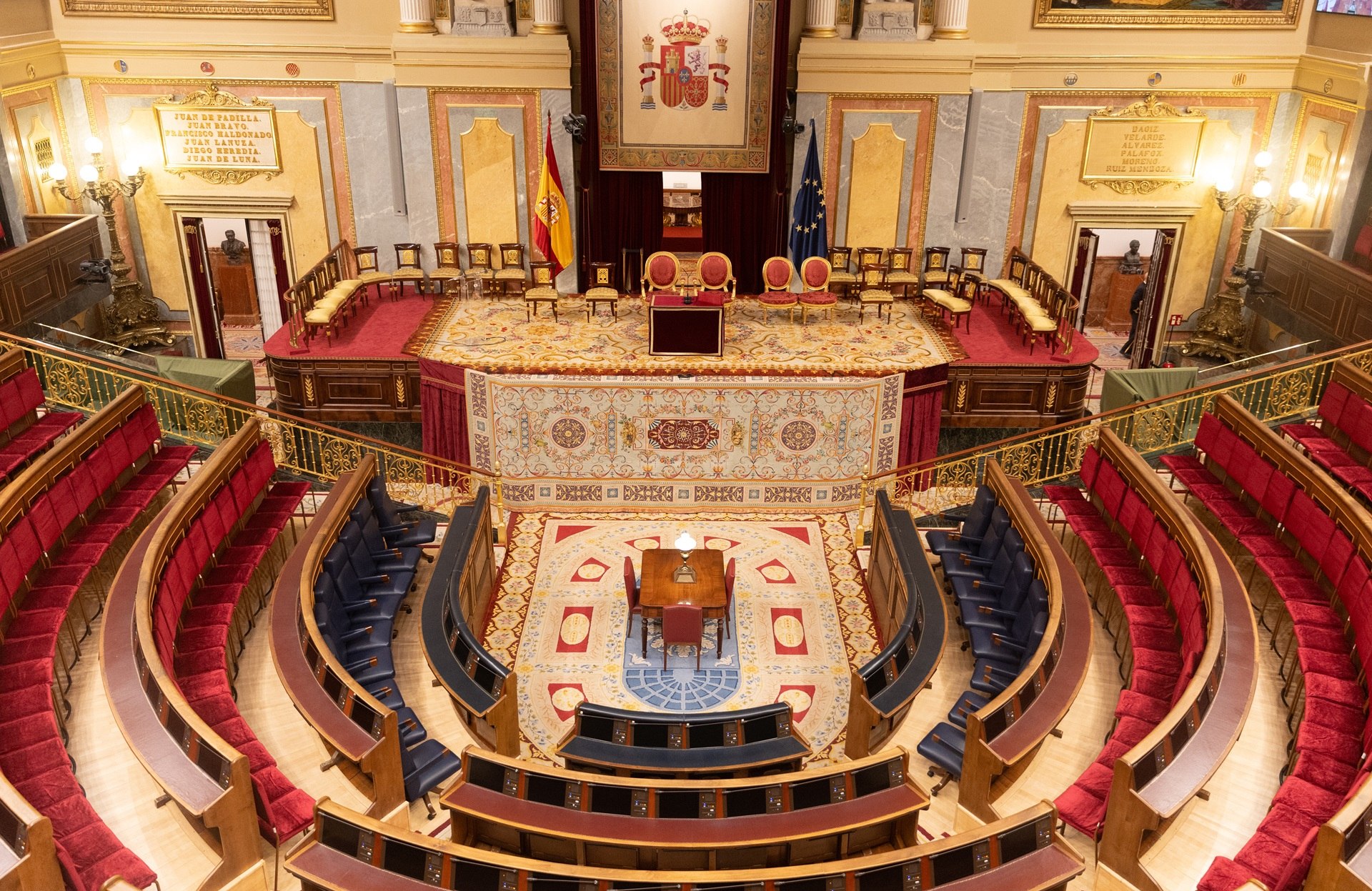This Tuesday, October 31st, Spain's Princess of Asturias, Leonor Borbón y Ortiz, will swear her allegiance to the Spanish Constitution in the country's lower house, the Congress of Deputies, coinciding with her 18th birthday, just as her father, current king Felipe VI did, on January 30th, 1986. However, Leonor will have to face a very different scenario from her father, since only members of the three largest parties - the PSOE, the PP and Vox - will attend. A total of 26 parliamentarians from Catalonia, the Basque Country and Galicia announced well in advance that they would not attend the session: twenty are from the Catalan and Basque pro-independence parties ERC, Junts and EH Bildu; and the other six are from the Basque and Galician nationalist groups, the PNV and BNG.
But that is not all. This Monday, less than 24 hours before the event, the first secretary of the Bureau of Congress, and member of Sumar-En Comú Podem, Gerardo Pisarello, has announced that he will not attend the constitutional oath-taking to maintain his "republican coherence", considering that the ceremony legitimizes the Crown's lack of democracy. In addition, the three acting ministers who come from Unidas Podemos - Irene Montero (equality), Ione Belarra (social rights, and general secretary of Podemos), and Alberto Garzón (consumer affairs) have also informed that they will not attend. Podemos justifies the absence of Montero and Belarra on the basis that this event only seeks to "shield" the monarchical institution, while Garzón argues from his party, Izquierda Unida, that they do not want to contribute to an "act of glorification of monarchical values".
Spanish government downplays the absences
The acting Spanish government spokesperson, Isabel Rodríguez, weighed in this Monday on the ministers' absences. "The government will be there practically in its entirety", she affirmed at the press conference following Monday's meeting of the Spanish cabinet. As she put it, the executive attributes "a lot of importance" to this appointment of "great historical and symbolic significance". Likewise, she highlighted "the affection, esteem and respect" that the Spanish government feels towards the protagonist of the event, the Princess of Asturias, heir to the Spanish throne, and highlighted the role of the Crown as a "central" body of the Spanish political system.
Sofia and Juan Carlos I will not attend either
Spain's queen emeritus Sofia will not attend the oath-taking of her granddaughter Leonor either, nor will she be present at the official breakfast at the Royal Palace, and thus, her presence - like that of her husband, former king Juan Carlos I - will be limited to the private family celebration which will be held at the end of the day. The royal house has explained that since Juan Carlos I was only going to attend the event that is to take place at the Palacio del Pardo in Madrid for Leonor's 18th birthday, they consider it appropriate for queen Sofia to do the same. The El Pardo appointment, of a private nature, will bring together the two families of the Princess of Asturias, both that of her father Felipe VI, and her mother, queen Letizia.
What's new and what's not
One of the new aspects of this Tuesday's ceremony is that Leonor will receive the medals of Congress and the Senate after the oath and will be invited to inaugurate the second edition of Congress's Book of Honour. What has not been changed between Felipe VI's ceremony 37 years ago and that of his daughter Eleanor is the copy of the Constitution on which the oath will be taken, a replica of the manuscript version created by the calligrapher Luis Moreno. As for the text itself, the Spanish Constitution is practically unchanged from when Felipe swore allegiance to the "Magna Carta" in 1986, and constitutional experts frequently link Spain's problems in resolving issues such as the territorial conflict over Catalonia with the immense complexity of procedures required to make significant changes to the Constitution. The Constitution has only been reformed twice, with relatively minor changes being made to Article 13 in 1992 (arising from the Maastricht Agreement) and to Article 135 in 2011 (on budgetary stability), both amendments carried out in response to European issues.

